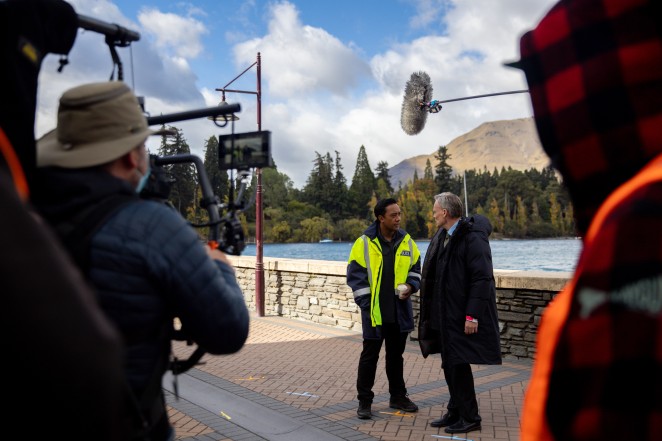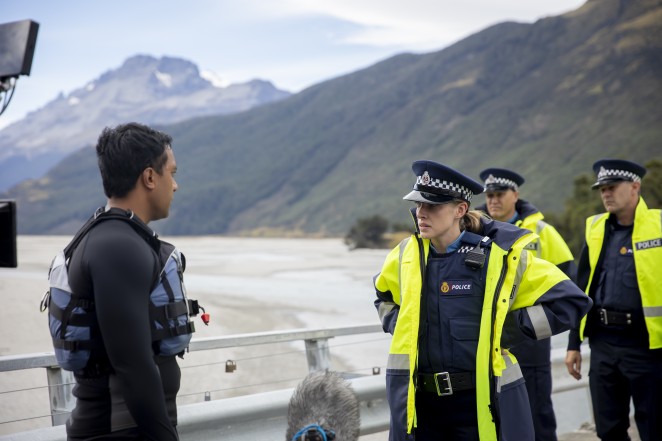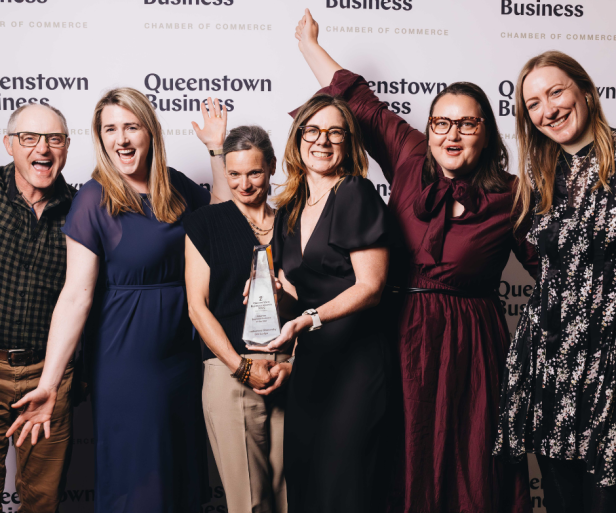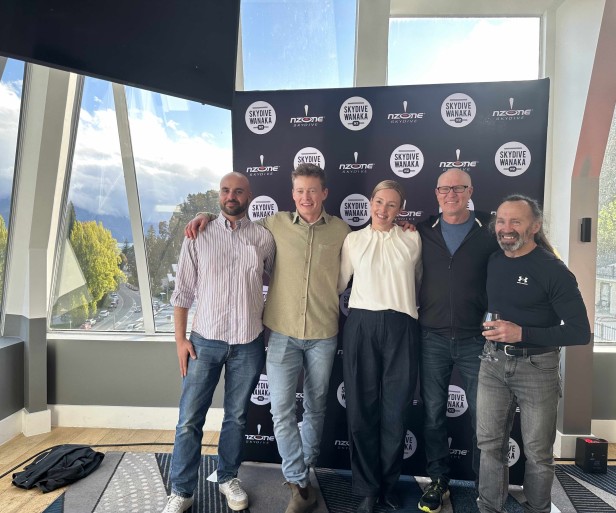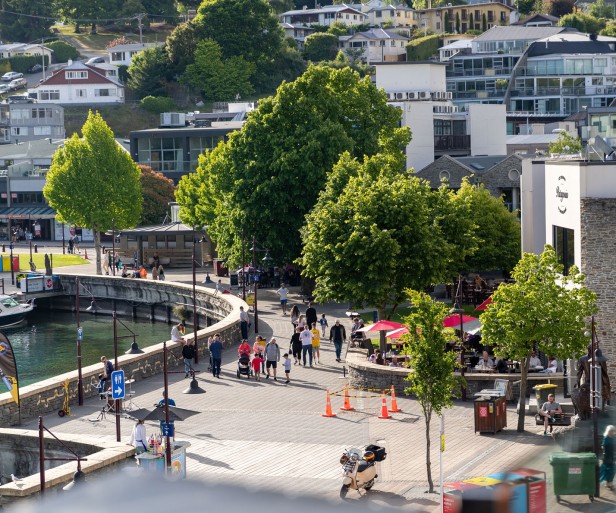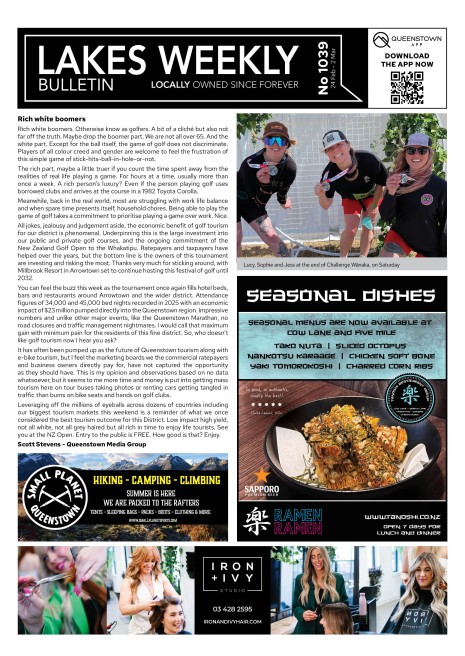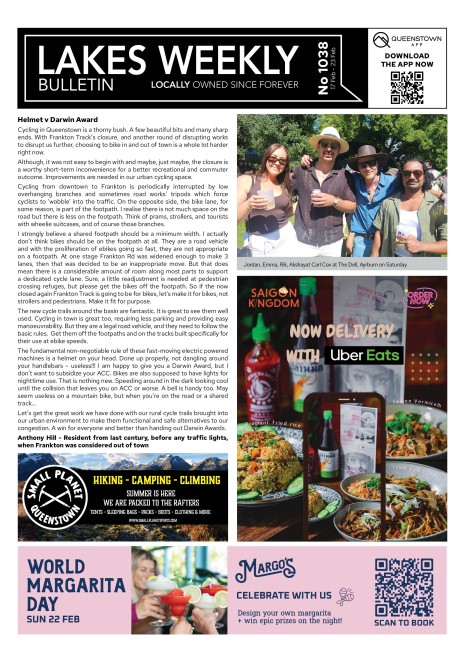The show must go on…
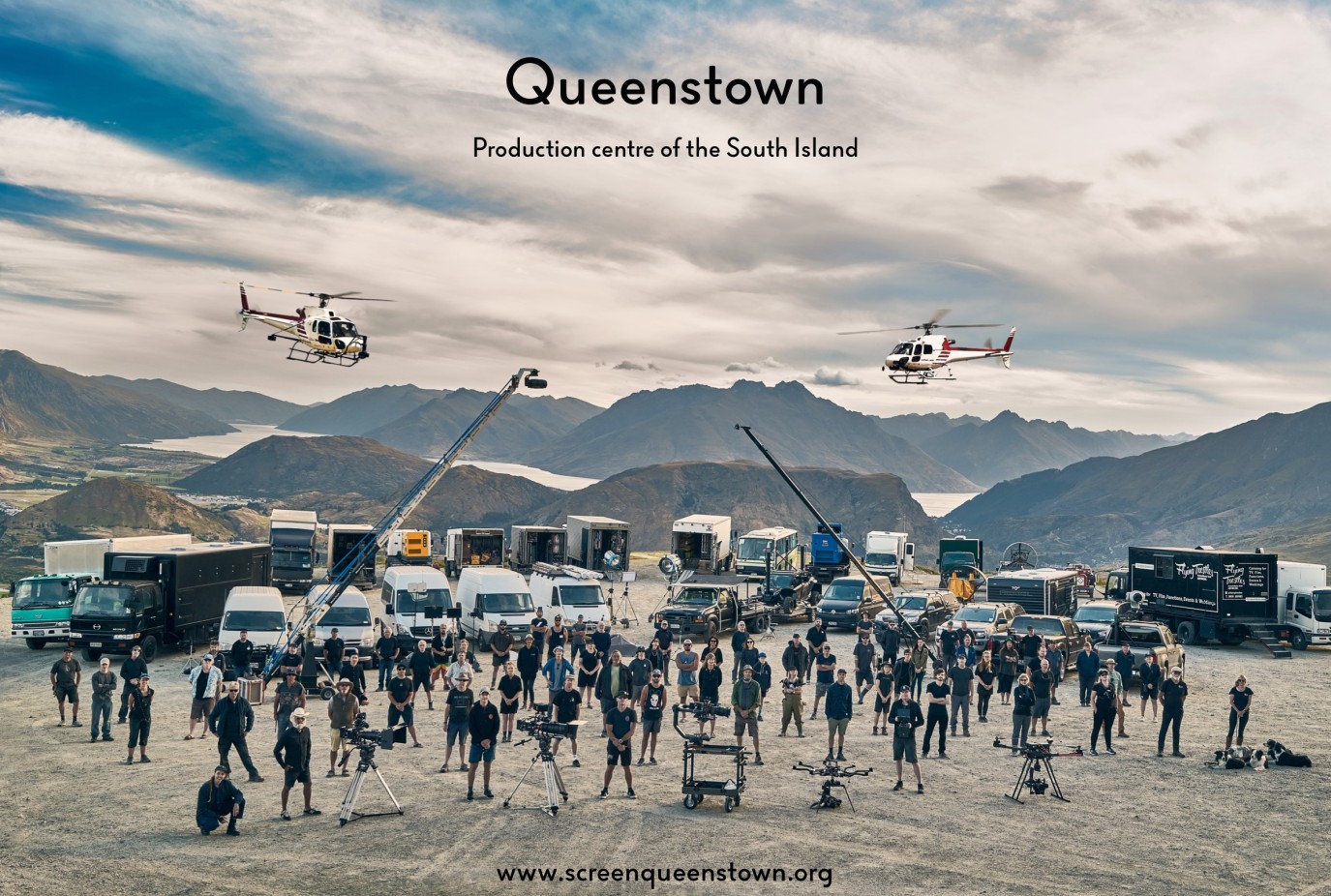
Despite closed borders the Queenstown Lakes film industry has still had a pretty strong year and there’s a positive vibe amid hopes of even better times to come.
The events of the past two years may have shut the doors on some of the regular international film crews and big overseas feature films, however, there have been some silver linings. It’s further established Queenstown as a great location for New Zealand film crews.
While those in the know are quietly optimistic, no major productions have been confirmed yet, and, even if they were, confidentiality is paramount in the film industry, at least until the cameras are actually rolling.
The local film office normally tracks an average 200 – 250 screen productions a year - films, TV shows and commercials, online content, documentaries, photoshoots, music videos and short films. That number dropped to slightly less than 200 during Covid, but 200 to 250 is the average for the last five years.
The economic benefits are far reaching from employment, tax revenue and good and services, through to expenditure locally. Latest figures show in 2018 the industry brought $35 million to Queenstown Lakes.
“I think we had a pretty good year last year with the One Lane Bridge and Under The Vines TV series both shot here,” says Great Southern TV ceo Phil Smith. His company is about to start shooting in Kaikoura, and hoping to once again shoot One Lane Bridge around the Wakatipu next year. Great Southern TV founded the month-long Tahuna screenwriters’ residency in Queenstown, with support from the Queenstown Lakes District Council, and Phil says they’re now busy pitching these storylines internationally. The project empowers ambitious screenwriters to develop uniquely New Zealand television dramas that can be taken to the world with four writers selected each year.
“There are a raft of shows we are producing off the back of Tahuna. These are stories that would all be shot entirely around Queenstown,” says Phil. “We spend the best part of the rest of the year overseas – Cannes for 10 days and London, and package that up.”
Great Southern TV is New Zealand’s second largest production company, also operating in Sydney, with nine shows in production in New Zealand at the moment.
“My whole emphasis is on bringing movies and TV series here to this region,” says Phil, who’s hoping both One Lane Bridge and Under The Vines will return to Queenstown next year.
Sweet Tooth Netflix series was also shot locally recently.
While some restrictions were in place during the past few years, filming within New Zealand didn’t really stop, although closed borders obviously affected international projects, says Phil.
The film industry injects millions of dollars into this region and industry sources estimate that every dollar spent on film projects translates as $5 into the local economy.
Film Queenstown Lakes and Film Otago Southland office co-ordinator Kahli Scott says there’s been “a bit of a renaissance” of New Zealand productions locally.
“While we usually get a lot of international TV commercials and film productions on location here, the NZ productions have filled that gap beautifully,” she says. “There’s been a real shift. We’ve had multiple seasons of two local TV shows (One Lane Bridge and Under The Vines), as well as MasterChef NZ, start to finish, which hasn’t happened before,” she says. “We’d love to keep that momentum going.”
Queenstown has become renowned for its experienced crew too and they regularly travel around NZ picking up extra work. “We’ve got a really strong pool of locally-based crew with international credits and the local productions help build on that reputation.”
“We had a flurry of permit applications in July, mostly commercials and online content,” says Kahli. “While we’re always servicing enquiries, sometimes productions can fall over for reasons beyond our control, so it’s hard to predict the pipeline.”
There’s been a lot of discussion about the need for a studio and more infrastructure on the ground to grow the local industry and attract more advance bookings. A go-to production base where crews can store equipment, costumes and gear would also be useful. Kahli says our amazing locations will always be a drawcard, but what solidifies filming decisions is to back up those locations with support services, facilities, and crew on the ground. “The district council and community also work hard to make that happen.”
The film office is also looking for ways to diversify what’s offered locally and provide more of a creative ecosystem in the local industry. “We’re looking to provide opportunities to writers, directors and producers – those in above line roles, who often create content and make the decisions. We want to nurture that part of the industry too.”
Camera and lighting equipment specialist, one of NZ’s leading camera house owners Brett Mills has been working in the local industry for more than 30 years. He says we need to get the word out internationally about the talent and specialist skills available on the ground here.
He’s working to get a new entity, to be known as Screen Queenstown, off the ground. It would target film producers, representing and promoting the local industry players. “We’ve got to secure more funding and go to LA and hustle. We’ve started the process but we just need a little help,” says Brett. “A lot of big productions come here for a few days and don’t realise they can do the whole thing here.” Most industry roles are available locally, but there are a few gaps that could still be filled.
“Christchurch is throwing money at filming in Canterbury, and locally our operators have had a good year with NZ productions.”
Brett agrees some sort of infrastructure would help, even if it was just a large covered building to offer a weather cover for outdoor shoots.
Well-known Queenstown talent agent Tracy Cameron says there’s still been plenty of commercial work coming through these past few years, including a large Coca Cola commercial directed by Kiwi filmmaker Taika Waititi. “That was all directed from the US,” she says. “There have been quite a few and they’ve been constant.”
Tracy’s work stretches to Dunedin where she was busy casting last year for Netflix movie The Royal Treatment. “I was juggling three projects at once at the time.”
She’s had to supply hundreds of extras during the filming of the local TV dramas. They need a new person every day. You can’t be a policeman one day and a waiter the next,” she says. “It was hard yakka. I never knew who was going to be needing people week by week. We don’t know until they’re here,” says Tracy. “I get briefed for Wellington, Christchurch and Auckland productions and even Christchurch has increased by 600 percent.”
She says plans for a Wanaka studio are very positive. “That will ultimately attract a lot of business and we will need a lot more faces around Wanaka and Queenstown.”
Silverlight Studios is still progressing with its plans for a multi-million dollar film studio in Wanaka, which has already been consented, and a company spokesperson says they’re hoping to provide an update in the next few months.
